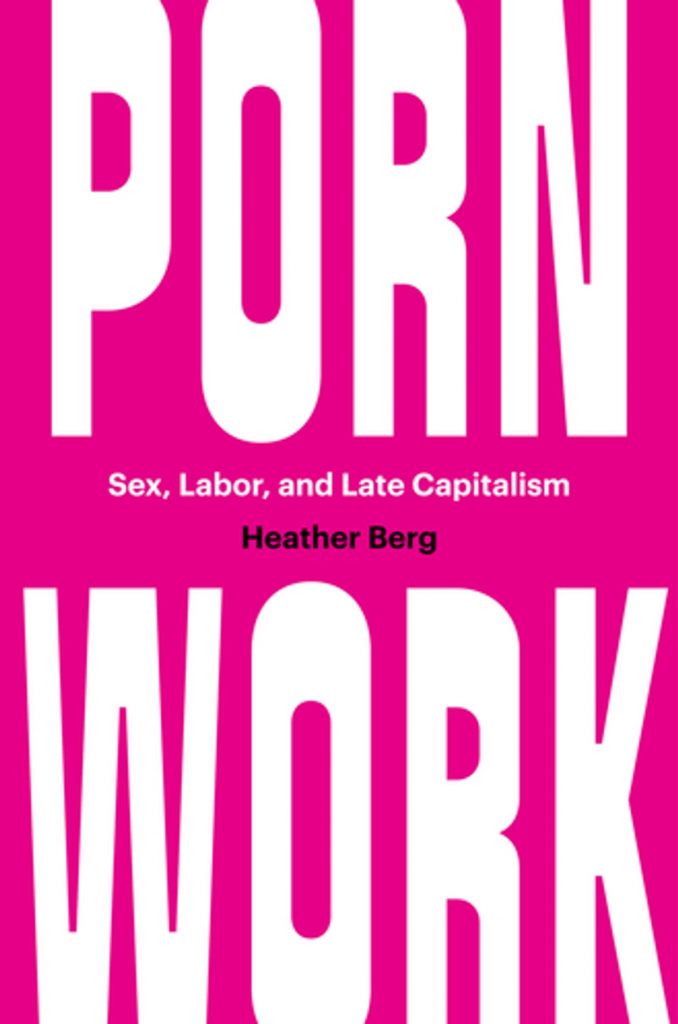
Porn Work
Heather Berg, 256 pgs, University of North Carolina Press, uncpress.org, $22.95
Every porn scene — and there are millions — is a record of people at work. This is the premise behind Heather Berg’s cohesive and fascinating account of the labour economies that form the adult entertainment industry. It’s a straightforward conceit: the production of X-rated videos requires work to be performed by various professionals, especially the on-screen performers. However, a cascade of pervasive cultural assumptions, moralizing exceptions, and political projections have discounted or distorted the status of the porn performer as a worker. Producers, investors, legislators, religious leaders, and economists alike stubbornly ignore the fact that porn is labour and must be treated as such.
Using hundreds of interviews conducted with performers and other industry people, Berg teases out these contradictions using contemporary Marxist theory, among other frameworks. In a section theorizing “authenticity work,” porn workers describe a culture where performers are prized for appearing genuinely excited about working. Paradoxically, performers are also financially devalued if they seem to enjoy the work — as though sexual pleasure, presumed or otherwise, could be a substitute for pay. Another chapter maps the changing role of video porn in a media ecosystem that increasingly eschews big production companies, instead requiring performers to combine their porn work with other gigs such as escorting, stripping, and paid social media subscriptions. Models describe the complexity of negotiating fair pay and safety on set while maximizing the benefits of self-employment. These interviews are rich and complex, and Berg shares them liberally as she forms an analytical response.
As with so many cultural studies texts, Berg’s questions and critiques ultimately offer little in the way of decisive conclusions. She opts instead for nuance and contradiction. Above all, she demonstrates how, despite the unique challenges of the porn economy, those on the front lines charge forward, inevitably finding creative ways to adapt, resist, and reimagine labour. It is clear Berg has great admiration for her subjects, as we all ought to. A useful academic read steeped in the conditions of the present.
